Use of Cookies
Our website uses cookies to facilitate and improve your online experience.
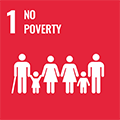
Somewhere in our Western minds the phrase “poverty, chastity, and obedience” is tied to our idea of religious life. We may think of a Buddhist monk or nun’s life in these same terms, but in the Pali Canon, Shakyamuni Buddha taught the Middle Way between rigid self-denial and excessive indulgence.
Grinding poverty—which the U.N. Sustainable Development Goals (SDGs) currently pegs at less than $1.90US per day—is not what the Buddha saw as the “middle way.” The Majhima Nikaya’s “Sabbasava Sutta” speaks of Four Requisites for a life of practice and balance: clothing, food, housing, and medicine. The lack of these requisites is cause for suffering, dukkha.
Today more than 700 million people on our planet exist in grinding poverty. Many of these people have no secure access to the Four Requisites, and their spiritual life can be as barren as their material Iife. In the Digha-Nikaya (iii 65 ff) the Buddha explains:
…from the not giving of property to the needy, poverty became rife, from the growth of poverty, the taking of what was not given increased, from the increase of theft, the use of weapons increased, from the increased use of weapons, the taking of life increased…
In 2021, the Covid-19 pandemic will drive another 150 million into extreme poverty. The good news is that since 1990 the percentage of the world population in poverty has been reduced from 36% to roughly 9%. The Sustainable Development Goals (SDGs) have set poverty eradication as a priority, with the aim of eliminating official poverty by the year 2030.
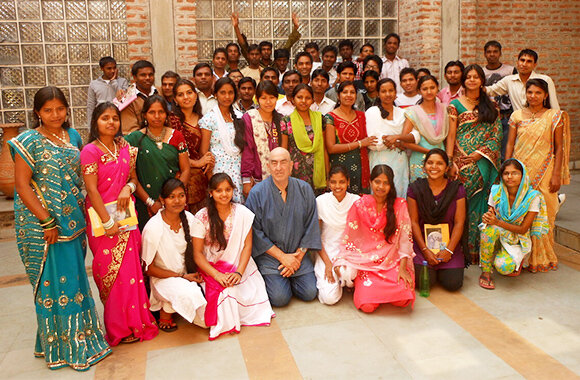
The classic Buddhist texts—both early schools and Mahayana—often speak of liberation in terms of individual transformation—freedom from suffering, equanimity in this life, leaving the wheel of birth and death in future cycles of existence.
At the same time, we are taught that there is no such thing as “my” suffering. Suffering is a fact of life in samsara. It doesn’t belong to me. Contemporary Zen practitioners have come to see that our lives are intertwined in systems and structures. Of course, such social structures are made up of individual persons, but they are also transpersonal, involving complex interactions of groups, communities, states, corporations, and so forth.
Rev. Martin Luther King Jr. wrote: “In a real sense all life is inter-related. …(we) are caught in an inescapable network of mutuality, tied in a single garment of destiny. Whatever affects one directly, affects all indirectly.”
Modern poverty is such a system, fundamentally driven by greed, hatred, and by the delusion that we are separate. Poverty eradication is the Sustainable Development Goals’ top priority, first articulated in Agenda 21 at the Rio Earth Summit in 1992. It requires our individual recognition of responsibility to all of our sisters and brothers, not to turn away from their needs. It also requires systemic intervention at every level of society—governmental, industrial, down to our religious centers, temples, and churches. The path to poverty eradication includes these interventions:
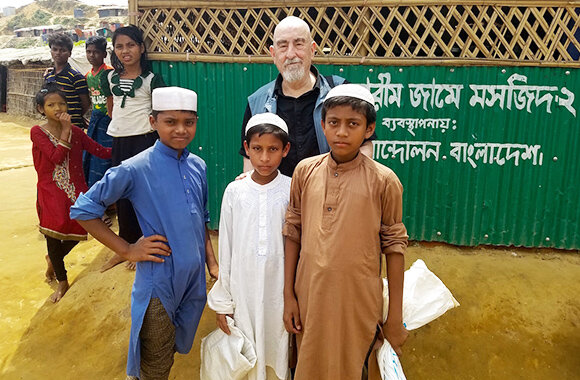
Taking a step back, we can consider this path through a Buddhist lens. Each of the Bodhisattva precepts is a guide to how we relate ethically to others and ourselves. Each precept has a prohibitory aspect and an affirmative aspect. In our temple, the First Grave Precept says: “I resolve not to kill, but to cherish all life.” The Second Precept says: “I resolve not to steal, but to honor the gift not yet given.” For myself, I have compressed the Ten Bodhisattva Precept to one principle: I vow not to live at the expense of other life. That means to give to beings, rather than take for myself: materially, spiritually, verbally. Poverty Eradication is a direct expression of this principle.
It is likewise expressed by the ancient principle of dana paramita or fuse in Japanese, which means generosity or giving. In Bodaisatta Shishobo, Zen Master Dogen writes:
Earning a living and working are fundamentally nothing other than giving. Leaving flowers to the wind, leaving birds to the times must also be meritorious acts of giving.
This free exchange—the constant cycle of giving and receiving like in-breath and out-breath—points to economic principles quite different from the profit motivation of the dominant capitalist system. When Dogen Zenji speaks of “earning a livelihood and managing a business” as dana paramita he is well aware of the Buddha’s teaching of “dependent origination.” In simple language, this says:
When this exists, that comes to be. With the arising of this, that arises. When this does not exist, that does not come to be. With the cessation of this, that ceases.
— Samyutta Nikaya 12.61.
So, where there is wealth, there is poverty. Where wealth is moderated, poverty is likewise moderated, and society can move towards a more even footing. I believe this is the kind of “business” Dogen has in mind. The eradication of poverty begins with the steps outlined above, but in the long run it depends on the structural and personal moderation of our acquisitive urges and greed, moving towards an economic system which recognizes that we are in this world, this life together. In the Anaṇa Sutta (AN 4.62), the Buddha describes a householder’s four kinds of happiness or sukkha:
Living like this, we can acquire the greatest wealth of all: finding contentment and safety in a world where people and nations aspire to justice, and seek equality of resources and opportunity.
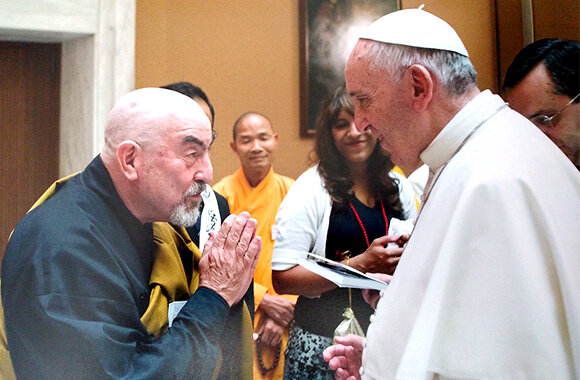
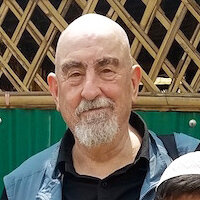
Profile:Kushiki Senauke is abbot of Berkeley Zen Center and founding director of Clear View Project.